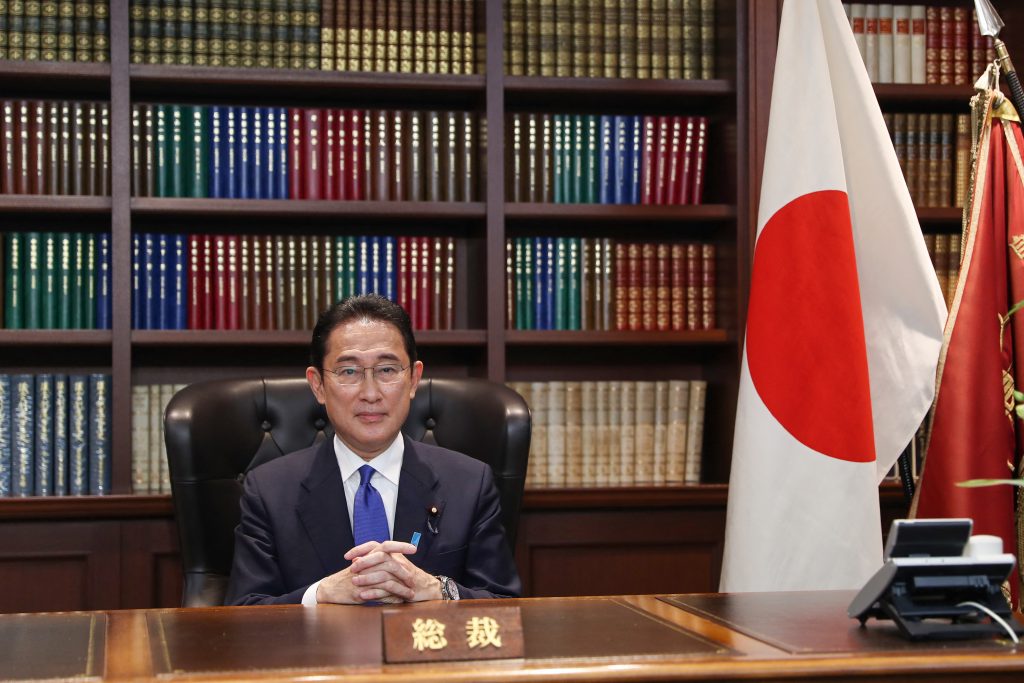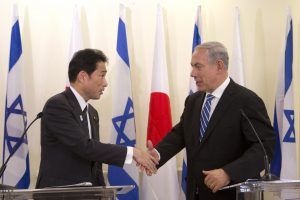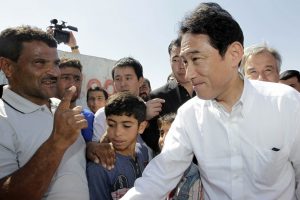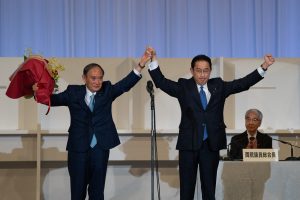
- ARAB NEWS
- 18 Aug 2025

Arab News Japan
TOKYO: Japan’s third new LDP leader in just over a year KISHIDA Fumio is also set to become the next Japanese Prime Minister, after narrowly beating his rival KONO Taro.
Kishida is 64 years old and comes from a family of politicians, as both his grandfather and father were part of the Diet. He graduated from Waseda University in Tokyo in 1982, and then became a member of the House of Representatives in 1993.
The new leader is also known as the longest-serving post-war foreign minister in Abe’s government from 2012–17. During his time, he had helped arrange former US President’s historic visit to Hiroshima Peace Memorial Park in 2016.
In 2013, Kishida visited Israel, Palestine and Jordan as part of an attempt at working on peace negotiations. At the time, he strongly urged both Israel and Palestine to refrain from taking any unilateral action that may harm the environment for the resumption and progress of the peace negotiations.

He also appealed to Israel to freeze settlement activities and to Palestine to abstain from newly seeking membership of international organizations and participation in international agreements.
In Jordan, Kishida visited the Zaatari camp, one of the largest Syrian refugee camps and offered encouragement to the members of Japanese NGOs operating there at the time.

Kishida briefly served as a defense minister and then moved on to LDP policy chief. He will now be designated Japan’s 100th prime minister by a special session of the Diet on Oct. 4, and then formally appointed by Emperor Naruhito.
It is expected that many party ministers will likely stay in place, such as deputy Prime Minister ASO Taro, Foreign Minister MOTEGI Toshimitsu and Defense Minister KISHI Nobuo, ABE Shinzo’s younger brother. Kono will also likely be kept in the cabinet.
Kishida is also expected to lead his party into a general national election, which must be held before Nov. 28.
A major challenge the new LDP leader will face is that of the COVID-19 vaccine rollout, which has been previously criticized. He plans to lead Japan into the post-pandemic recovery after pledging to spend tens of trillions of yen to stimulate the economy, ensuring to prioritize those on lower incomes, struggling regional areas and the tourism industry.

Kishida is committed to having Japan reach net-zero carbon emissions by 2050, however, he has supported restarting the country’s idle nuclear reactors.
While he supports changing the law to allow women to keep their family names after marriage, he is still not in favor of female imperial succession.
In terms of foreign affairs, Kishida is seen adopting some of Kono’s suggestions such as the development of nuclear-powered submarines as part of Japan’s promotion of the Quad – the security grouping made up of Japan, the US, Australia and India.
Kishida is also expected to continue to boost Japan’s Self-Defense Forces and develop longer-range missiles, in order to deter invasions from both China and North Korea. However, he regards maintaining stable relations with Beijing a priority, since China is Japan’s largest trading partner.
Despite his loss to Kishida, Kono is willing to cultivate his prominent profile for another attempt at the party leadership, due to be held in three years.